If you're searching for “how to know if the engine oil is low,” look for the following ten common symptoms:
- Visible decrease in oil level using a dipstick
- Warning lights
- Ticking noises
- Oil leak
- Oil smell
- Engine overheating
- Reduce engine performance
- Inconsistent oil Color
- Weird exhaust smoke
- Loud engine noises
Oil is one of the most important fluids in any vehicle that you must keep up with, and never drive without proper oil. You must keep up with the oil quantity and quality to avoid dealing with engine problems that could result in thousands of dollars in repair.
It's not rare to deal with situations where your engine has a low motor oil, and if that happens, you need to act immediately and resolve the problem to top up the oil or check for any potential leaks as soon as possible.
This article highlights the ten most common symptoms to help you answer the question, “How to know if the engine oil is low?” It also highlights recommendations for when the engine oil is low.
What is the engine oil, and why is it important?
Before we dive into the details of your question of “how to know if the engine oil is low,” it's very critical for all readers to understand the purpose of motor oil and what could happen when it's not at the proper quantity and quality.
The motor oil is responsible for lubricating the internal motor components. The oil prevents any internal heating generated from the friction between these components. When there is enough oil, your engine should operate properly without suffering or stress.
Due to many reasons, your engine might get to a point where the motor oil is very low and to the point that could result in significant engine overheating that could damage the engine completely.
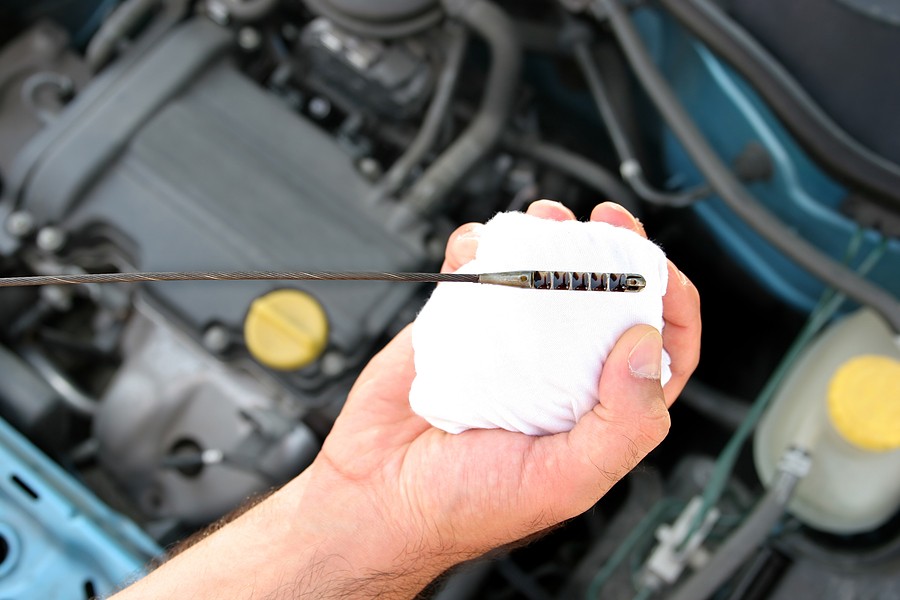
How to know if the engine oil is low?
Now you have a general idea about what could go wrong when the motor oil is low; you need to learn about the common symptoms indicating a low engine oil which includes the following 10:
1- Visible decrease in oil level using a dipstick
The first and easiest thing that could help you determine whether you have a low engine oil is to check the oil level. You can use the dipstick and follow instructions to determine the current oil in the engine.
Typically, there is a mark on the dipstick that will tell you if the oil is at the optimum level or not. You must ensure that the oil level is not below this mark and that you don't want it over the top beyond the maximum allowed level.
2- Warning lights
Another thing that you might notice when the engine oil is not at the optimum level is some warning lights. These warning lights are responsible for communicating and letting you know about internal problems. Therefore, you have never to ignore them.
Depending on your vehicle, sometimes you might see an oil mark on the dashboard indicating that the oil level is at a critical point. When this happens, you must communicate with your mechanic and maybe not drive your vehicle until the problem is resolved.
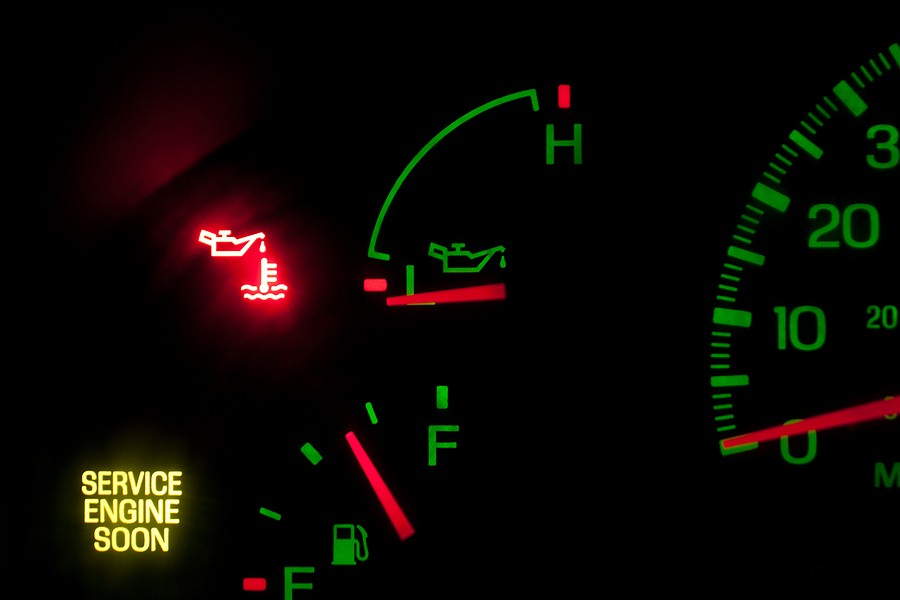
3- Ticking noises
Low engine oil is always associated with engine overheating, which could result in some ticking noises coming out of the engine. These noises are severe, and it's not something you should ignore and continue driving your car.
As all thumbs come, automotive experts typically recommend never to ignore anyone who knows it's coming from your vehicle, especially if you feel that these noises are new and weren't before. You need to track when these noises are occurring to help your mechanic pinpoint the potential culprit.
4- Oil leak
When the motor oil is low, it doesn't go very low significantly in no time. In other words, it'll be a gradual reduction. However, if you feel that there was a significant reduction in oil level, there might be some internal or external oil leaks.
You could look at the vehicle and see if there is any sign of oil dropping on the floor or the surrounding components. Sometimes the oil leak might be minor, but it's been a long time since it's been leaking, so the oil level is low.
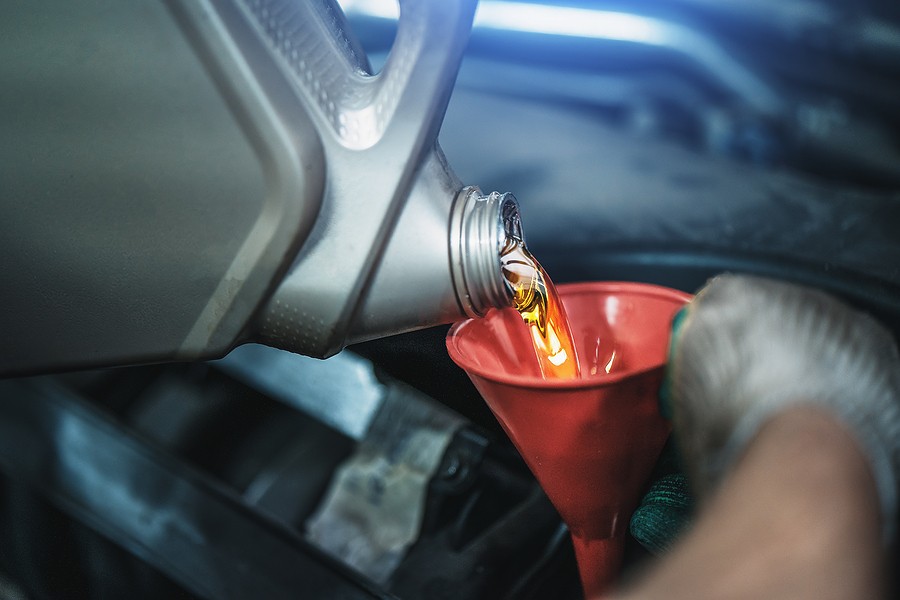
5- Oil smell
Depending on how severe the oil leak in your vehicle is, you might notice some oil smell every time you get in. Therefore, you should not ignore the problem because it might mean that your engine is at a critical point, and you must address the oil leak problem as soon as possible.
Similar to the weird noises come, automotive experts typically recommend that you never ignore any of these smells, whether these are good or bad, because they could indicate some internal issues that might be addressed simply by having your mechanic inspect them as soon as possible instead of waiting until the problems are complicated and require thousands of dollars on repair.
6- Engine overheating
We mentioned earlier that the low oil level is typically associated with engine overheating, which you could notice from the vehicle's temperature or by looking at the monitor temperature gauge on the dashboard.
If the temperature gauge reads very high, your vehicle is at a critical point, and you have to pull over and start your vehicle in a safe area. If you fail, the problem could evolve into smoke from the hood.

7- Reduce engine performance
If you've been dealing with low engine oil for a long time, you'll notice that the engine performance will be reduced. This is because the engine is continuously under pressure, and there is nothing to lubricate internally, which means that the internal components are constantly in a friction case.
That's why when you feel that the engine is not operating as it should, consult your mechanic and have him look at the vehicle's motor oil level to see if this is something resulting in the problem or something else.
8- Inconsistent oil color
Several customers reported that every time they have a low oil level, it is associated with the problem where the head gasket is broken, which means that many of the different fluids got mixed, and that's where you see the oil color is inconsistent.
You could open the oil and check for its color. If you feel it has some form or milkshake-like substance, it could indicate a severe problem in the vehicle and result in a low oil level because of an internal or external leak.
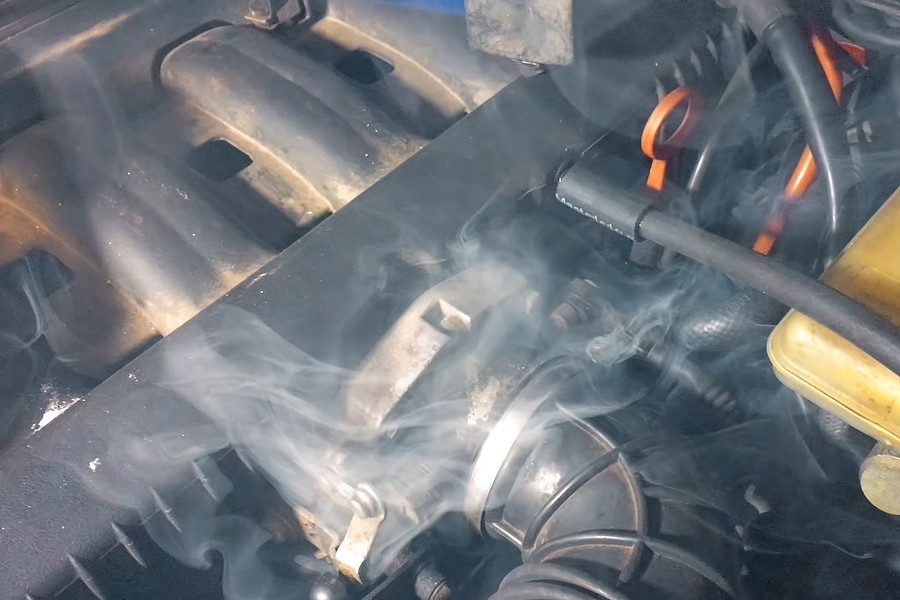
9- Weird exhaust smoke
When problems get more complicated, with the low oil level, you'll notice the exhaust smoke coming with a weird color. Typically if you're driving a more modern car, you shouldn't see any exhaust smoke; still, if you start noticing some strange colors, it might mean that your vehicle has an internal oil leak inside the engine, and it also means that the oil level will be low.
10- Loud engine noises
Finally, if the engine does not have the required oil level, it will start making weird loud noises. These noises could mean many things, but one might be related to the low oil level.
Whenever you notice any of these symptoms, you must talk to your mechanic as soon as possible and never delete a problem because it gets only worse and will cost you more money than you could pay to fix it.

What to do when the engine oil is low?
You must act immediately if you confirm that the motor oil is low. For example and in some instances, you might need to pull over and stop your vehicle completely, especially if this is associated with engine overheating.
One thing you could do is to consult your mechanic and have him advise you about what needs to be done with the motor oil is low. You might be able to top off the motor oil, assuming that it's the only thing you're suffering from; still, if it's associated with a complete and significant oil leak, you might need to get your vehicle towed to the nearest repair shop to get it inspected and repaired.
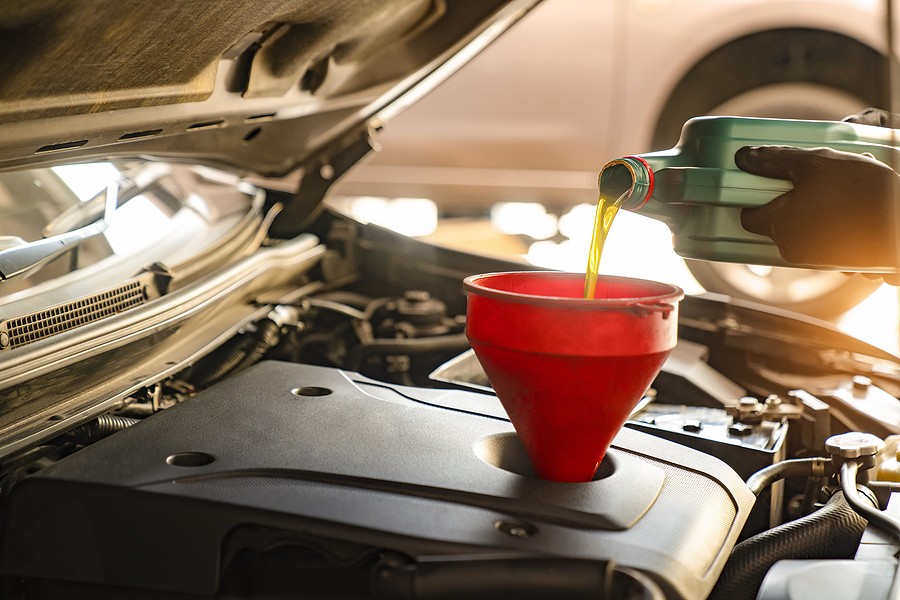
How to know if the engine oil is low? Final Thoughts
The motor oil is essential in any vehicle that helps the engine operate properly and prevents internal overheating. When it's slow, it can lead to significant engine damage that might cost you the entire engine.
This article highlighted the ten most common symptoms indicating a low engine oil to help you answer the question, “How to know if the engine oil is low?” If you experience any of these symptoms, you must consult your mechanic as soon as possible to avoid dealing with further complications that might cost you a lot of money.
If you're interested in similar posts, we highly encourage you to visit our blog by clicking here!



